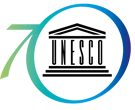Send your comments to improve the data presented in the Atlas
Each language entry in the online Atlas contains a tab for comments designed to collect feedback from speakers of endangered languages and experts who study these languages, thus contributing to the improvement of the Atlas. We invite your comments on any of the elements presented there (names, vitality, location - coordinates, countries or areas, number of speakers and ISO 639-3 codes) with, when possible, bibliographic or online sources. All comments will be considered and processed, but it may take some time.
We also invite you to provide more detailed information on your language or a language you have studied using the Linguistic Vitality and Diversity Questionnaire (English|Spanish|Chinese) based on the methodological framework proposed by the UNESCO Ad Hoc Group on Endangered Languages. This will contribute to the precision of the data provided in the Atlas, as well as to elaborating the indicator on linguistic diversity and vitality (coming soon).
We also welcome information on safeguarding projects under way for languages in this Atlas, as well as complementary resources on these languages (online dictionaries, websites, references to media in these languages, etc.).
For remarks on a specific language, please use the in-built forms (‘submit a comment’ tab) of the Interactive Atlas. If you wish to suggest an endangered language to be included in the Atlas, please fill in this form. For more general comments, please email atlas_AT_unesco.org.
The interactive online edition of the UNESCO Atlas of the World’s Languages in Danger is complementary to the print edition and may be cited as:
- Moseley, Christopher (ed.). 2010. Atlas of the World’s Languages in Danger, 3rd edn. Paris, UNESCO Publishing. Online version

